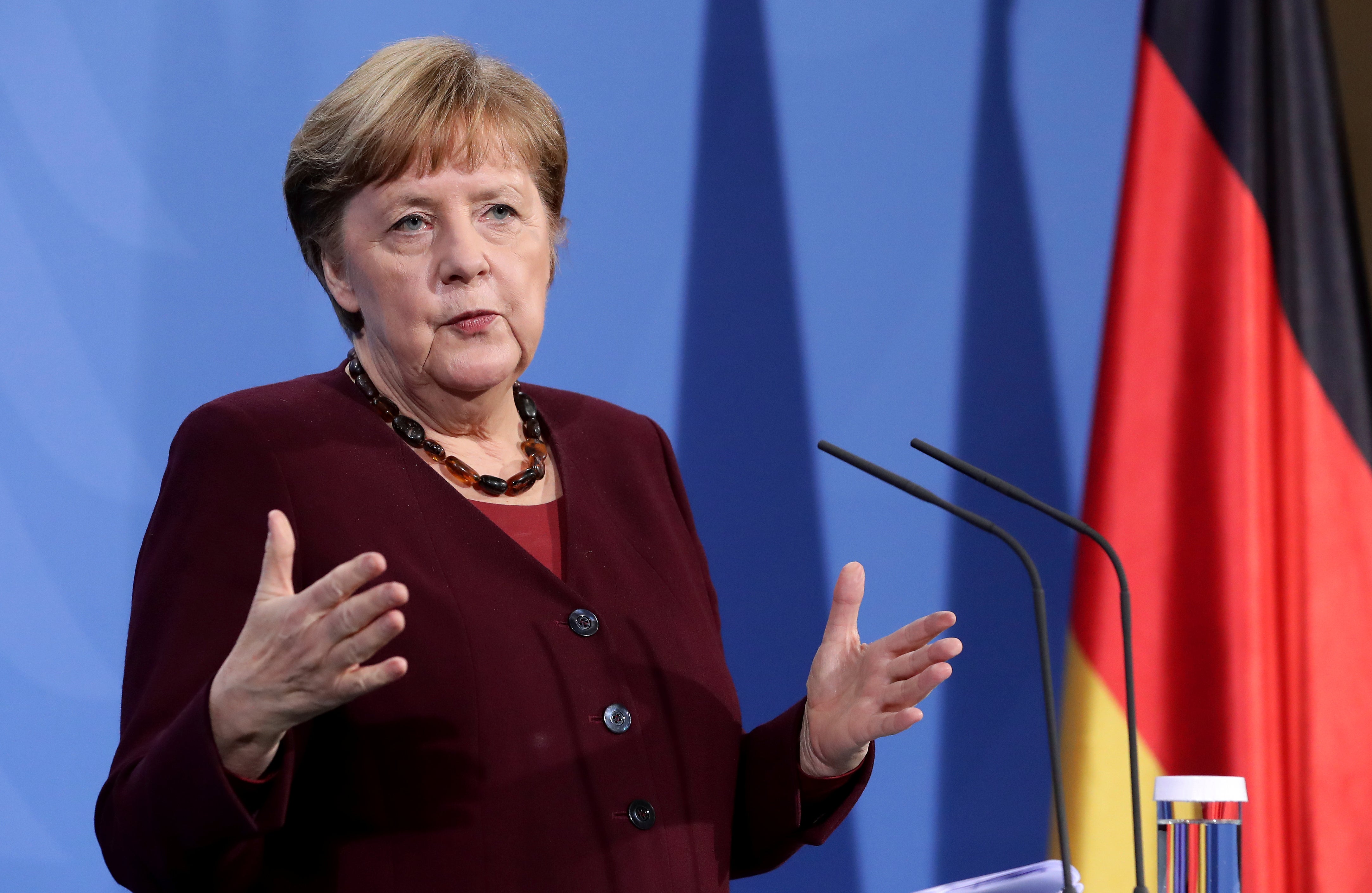Germany looks set to extend lockdown measures again
German authorities are expected to extend lockdown measures again and possibly tighten some restrictions as they face a steady rise in new coronavirus infections

German authorities are expected to extend lockdown measures again on Monday and possibly tighten some restrictions as they face a steady rise in new coronavirus infections.
Chancellor Angela Merkel and the country's 16 state governors, who in highly decentralized Germany are responsible for imposing and lifting restrictions, are holding a videoconference nearly three weeks after they agreed a several-step plan paving the way to relax some rules.
Since then, infections have increased steadily as the more contagious variant first detected in Britain has become dominant. Most lockdown restrictions are currently set to run through March 28. The chancellery is proposing an extension to April 18.
Rather than new moves toward a more normal life, one focus now is pressing regional officials to use consistently an “emergency brake” mechanism under which relaxations granted in recent weeks — such as the partial reopening of nonessential shops — are supposed to be reimposed if new weekly infections in an area exceed 100 per 100,000 residents on three consecutive days.
“Unfortunately, we will have to make use of this emergency brake,” Merkel said Friday.
The weekly infection rate per 100,000 people stood at 107 nationwide on Monday, up from the mid-60s three weeks ago.
Officials also face the question of what to do about Easter holidays. Restaurants bars and many leisure facilities in Germany have been shut since early November, and hotels closed for tourists.
At the same time, Germany's criteria for assessing the virus situation abroad meant that a travel warning for parts of Spain was lifted earlier this month, prompting a much-criticized surge of bookings to the popular vacation island of Mallorca
There have been calls for people returning even from places abroad that aren't deemed “risk areas” to face obligatory tests and quarantine. The government has stressed that it continues to discourage tourist trips.
Meanwhile, Germany is trying to speed up its vaccination campaign after a slow start. On Friday, Merkel and the state governors agreed to gradually bring on board ordinary doctors' practices just after Easter. So far, Germany has largely relied on special vaccination centers.
As of Saturday, 8,7% of the population had received at least a first dose of vaccine and 3.9% had received both doses.
___
Follow AP’s pandemic coverage at:
https://apnews.com/hub/coronavirus-pandemic
https://apnews.com/hub/coronavirus-vaccine
https://apnews.com/UnderstandingtheOutbreak